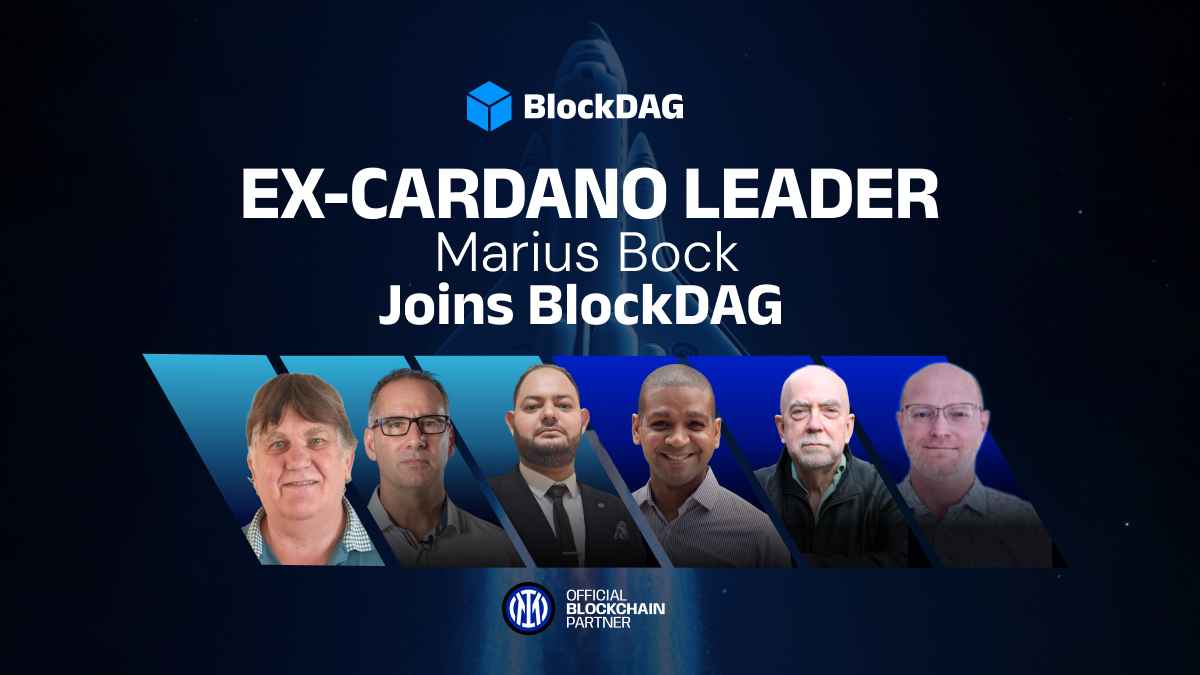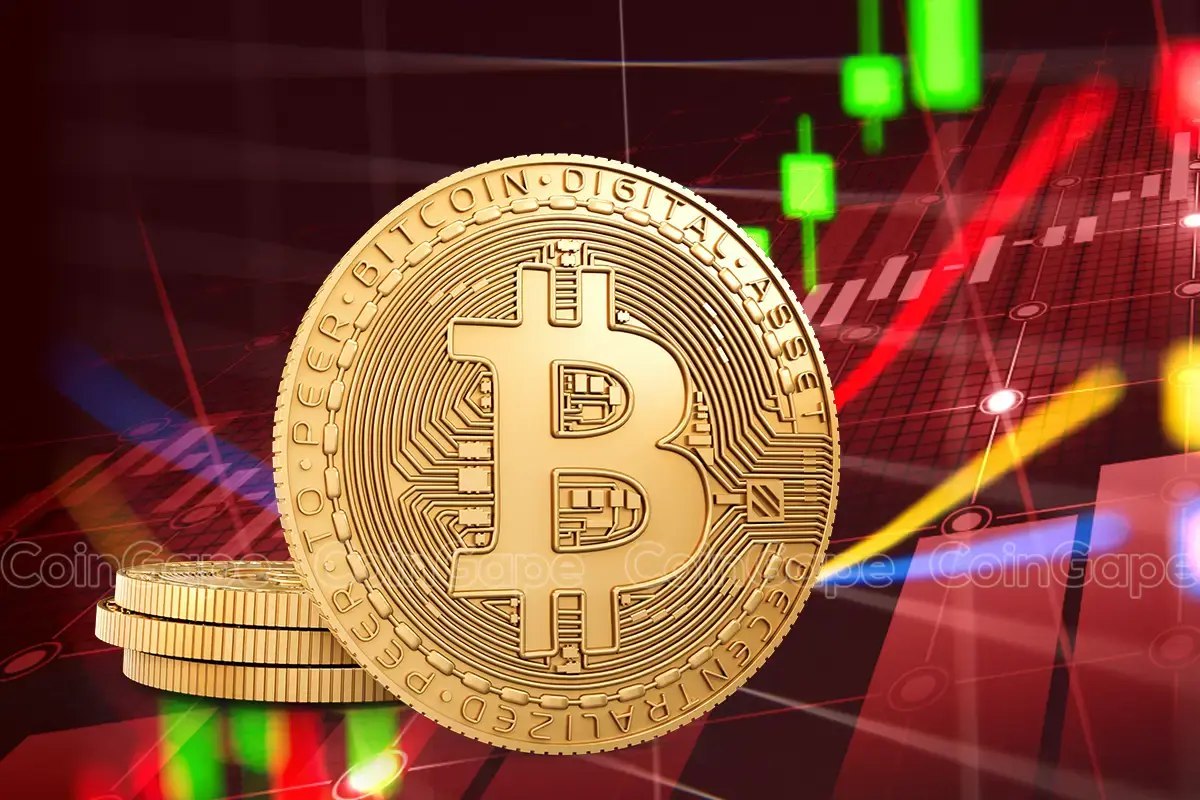 CaryptosHeadlines Media Has Launched Its Native Token CHT.
Airdrop Is Live For Everyone, Claim Instant 5000 CHT Tokens Worth Of $50 USDT.
Join the Airdrop at the official website,
CryptosHeadlinesToken.com
CaryptosHeadlines Media Has Launched Its Native Token CHT.
Airdrop Is Live For Everyone, Claim Instant 5000 CHT Tokens Worth Of $50 USDT.
Join the Airdrop at the official website,
CryptosHeadlinesToken.com
Strategic decisions often define the trajectory of blockchain platforms. While Solana continues refining its transaction throughput and ecosystem reliability, and Polygon pushes boundaries with cross-chain connectivity, BlockDAG Network is charting a distinctive path.
The recent appointment of Marius Bock, a seasoned expert from Cardano, underscores BlockDAG’s commitment to leadership excellence. Paired with its presale success, raising $180 million and boasting 170,000 unique holders, BlockDAG’s strategy aims to rival established platforms by focusing on accessibility and operational strength.
BlockDAG: Strengthening Leadership for Expansion
Marius Bock’s addition to BlockDAG’s leadership team reflects a deliberate focus on leveraging seasoned expertise to navigate its upcoming exchange listings and expand its ecosystem.
Bock’s tenure at Cardano demonstrated his ability to manage large-scale blockchain initiatives, providing BlockDAG with a competitive edge as it seeks to scale operations. His leadership will likely drive innovation and operational efficiency, particularly as the project attracts attention from institutional investors and retail users.
The decision to bring Bock onboard comes at a critical juncture. BlockDAG is targeting major CEXs for increased accessibility and liquidity. Successful execution of this strategy could bolster BlockDAG’s market presence and accelerate adoption, putting it in direct competition with established players like Solana and Polygon.
A major highlight of BlockDAG’s trajectory is its ongoing presale success. The presale has raised an impressive $180 million so far, with over 170,000 unique holders participating.
Currently in its 27th batch, the BDAG coin price has surged from an initial $0.001 to $0.0248—a staggering growth of 2,380%. Early backers have already seen remarkable returns, with projections suggesting even greater gains ahead. Analysts estimate BlockDAG could deliver up to 30,000x returns by 2030.
Solana: Advancing Scalability and Ecosystem Growth
Solana has cemented its place as a leading blockchain by focusing on scalability, speed, and cost efficiency. The network’s recent developments emphasize its commitment to maintaining a high-performance infrastructure while expanding its ecosystem.
One of the most notable advancements is Solana’s continuous push to improve its transaction throughput, achieving tens of thousands of transactions per second. This scalability has enabled the network to support a growing number of decentralized applications (dApps) across various sectors, including decentralized finance (DeFi), gaming, and non-fungible tokens (NFTs).
Solana’s integration with Robinhood in November 2024 further demonstrates its focus on increasing accessibility. By making Solana (SOL) available to U.S. traders, the platform has broadened its reach and provided a seamless entry point for retail investors. Additionally, Solana’s adoption of innovative solutions to address downtime issues and enhance validator efficiency showcases its proactive approach to network reliability.

Polygon: Pioneering Cross-Chain Connectivity
Polygon has focused on enhancing interoperability and scalability. Its recent introduction of AggLayer aims to aggregate zero-knowledge proofs across multiple blockchains, creating a unified user experience. AggLayer’s ability to connect Layer-1 and Layer-2 blockchains addresses a critical pain point in blockchain technology: the lack of seamless interaction between different networks.
Polygon has also prioritized regulatory compliance, working to ensure its ecosystem remains resilient despite increasing scrutiny. However, the SEC’s classification of Polygon’s token (MATIC) as a security in 2024 posed challenges for its market operations. Despite these hurdles, Polygon continues to attract developers and projects, solidifying its reputation as a hub for scalable and efficient blockchain solutions.
Comparing Strategies
Leadership and Vision
BlockDAG’s recruitment of Marius Bock demonstrates a focus on enhancing its leadership for operational success. In contrast, Solana and Polygon have emphasized technological advancements and ecosystem expansion. While all three strategies aim to strengthen their respective platforms, BlockDAG’s approach signals a belief in the transformative power of strong leadership.
Market Accessibility
Solana’s Robinhood listing and Polygon’s focus on simplifying cross-chain transactions have increased their market presence. BlockDAG’s upcoming listings on ten major CEXs could provide comparable opportunities for user acquisition and liquidity. The success of these listings will be a key determinant of BlockDAG’s competitive standing.
Regulatory Preparedness
Both Solana and Polygon have faced regulatory scrutiny in recent months, with the SEC’s classification of their tokens as securities raising concerns. BlockDAG’s strategy must consider these challenges as it navigates its entry into major exchanges. Proactive measures to address regulatory issues will be critical for sustaining long-term growth.
Outlook for BlockDAG
BlockDAG’s ability to compete with Solana and Polygon hinges on its ability to execute current plans and adapt to changing market conditions. Marius Bock’s leadership will be instrumental in driving BlockDAG’s strategic goals, particularly as it seeks to establish itself as a viable alternative to these well-established platforms.
While Solana and Polygon continue to lead in technological innovation and ecosystem development, BlockDAG’s focus on leadership and market accessibility offers a unique value proposition. If BlockDAG successfully leverages its strategic hires and executes its exchange listing plans, it could attract users and developers seeking an efficient and scalable blockchain solution.
Website: https://blockdag.network
Presale: https://purchase.blockdag.network
Telegram: https://t.me/blockDAGnetworkOfficial
Discord: https://discord.gg/Q7BxghMVyu














